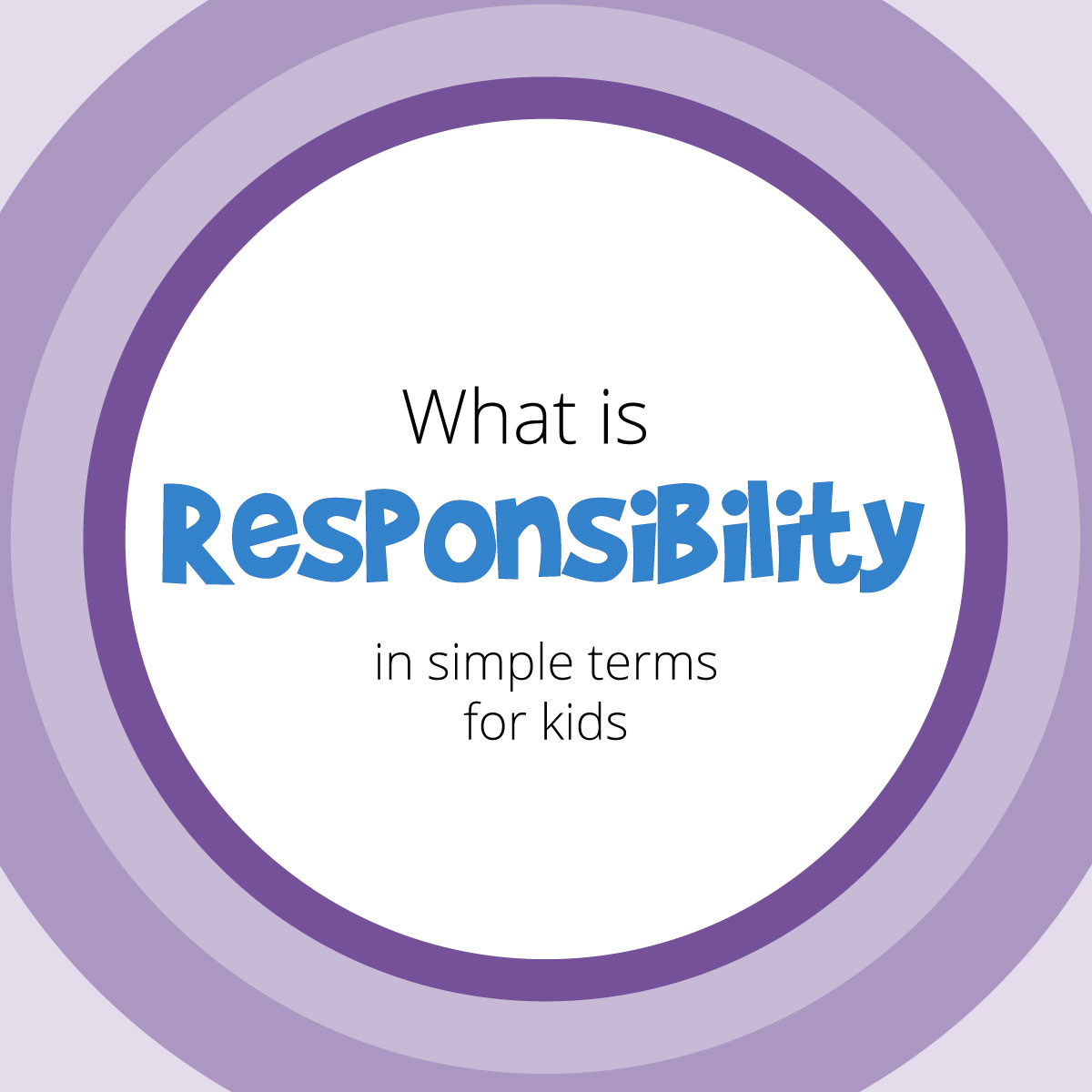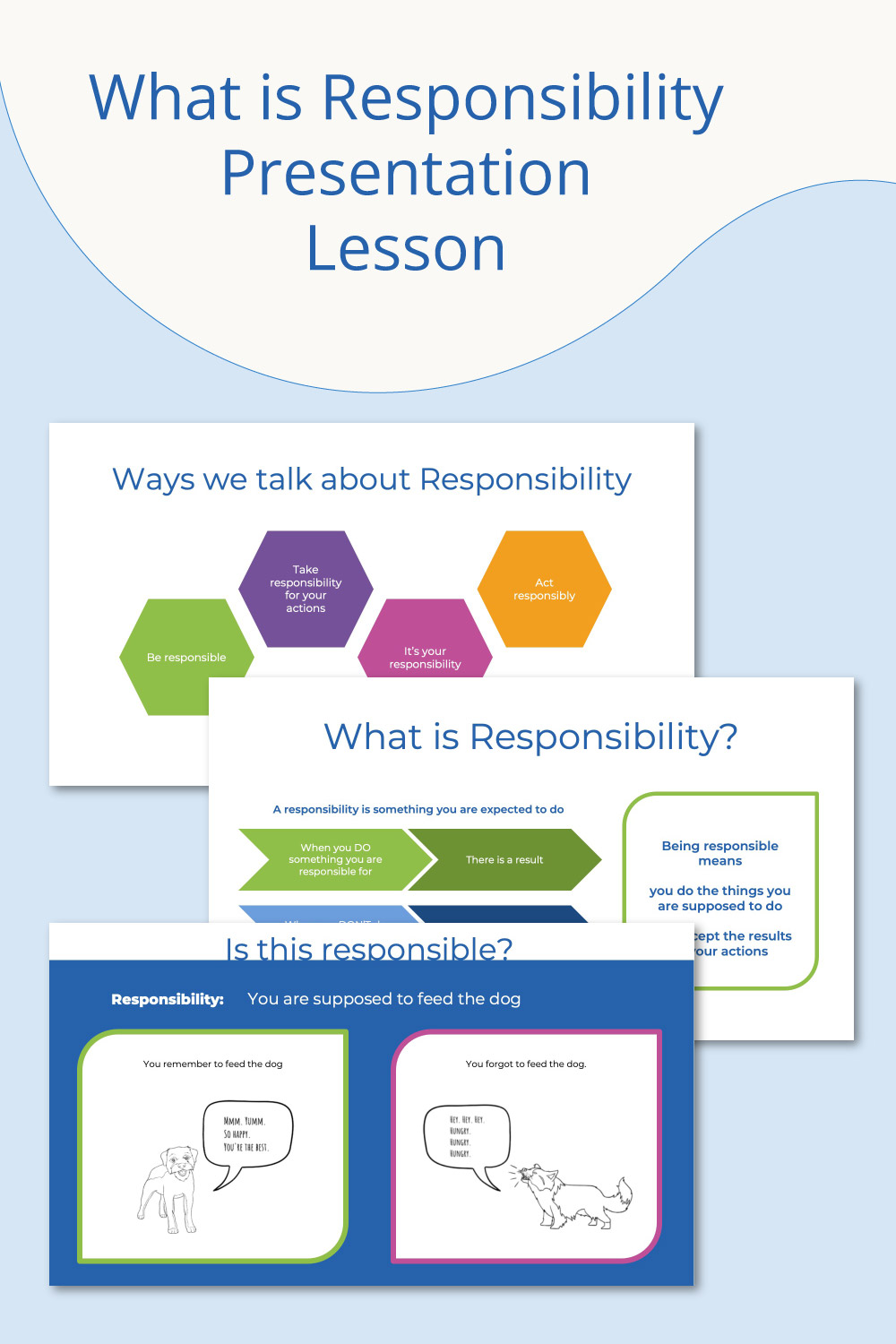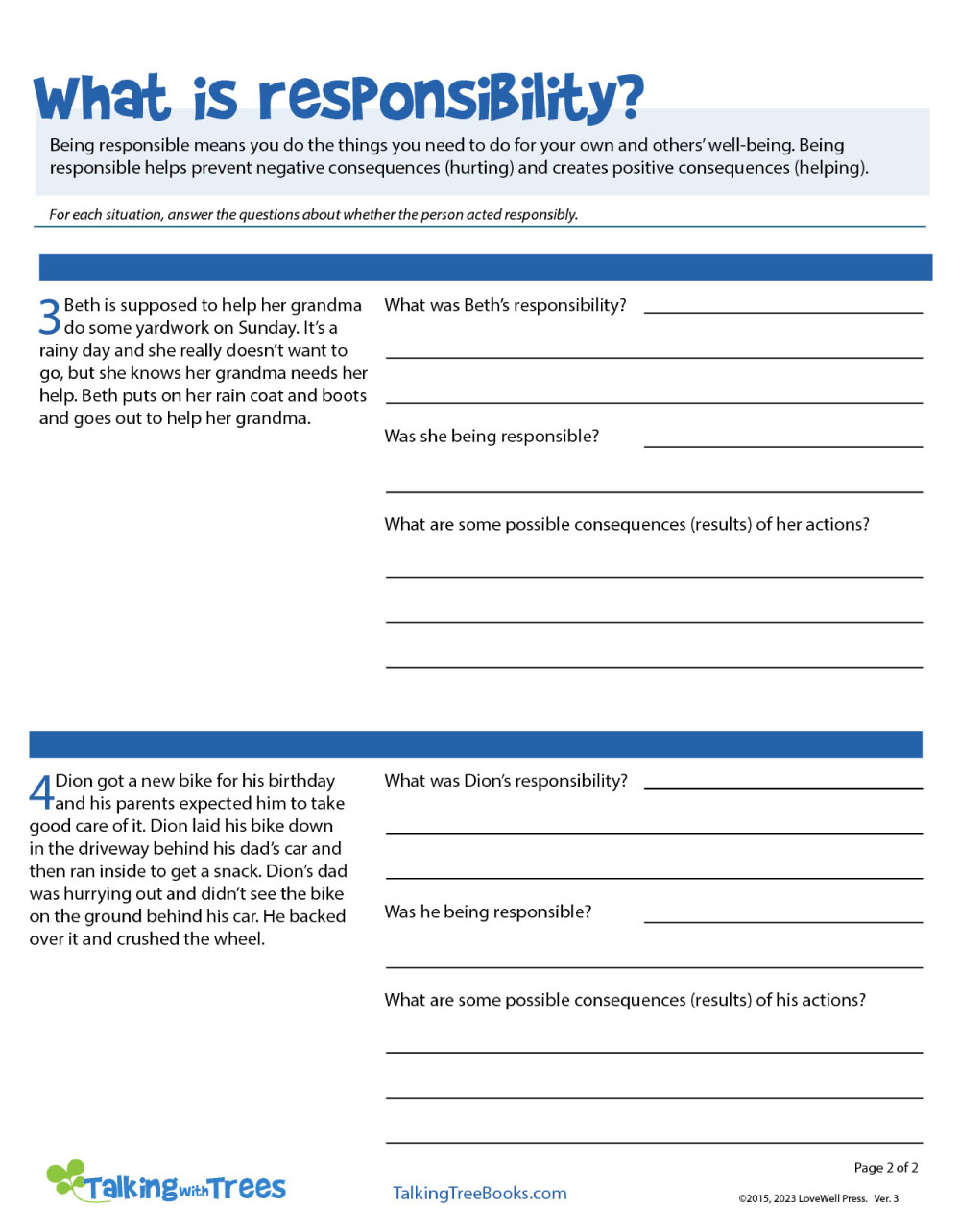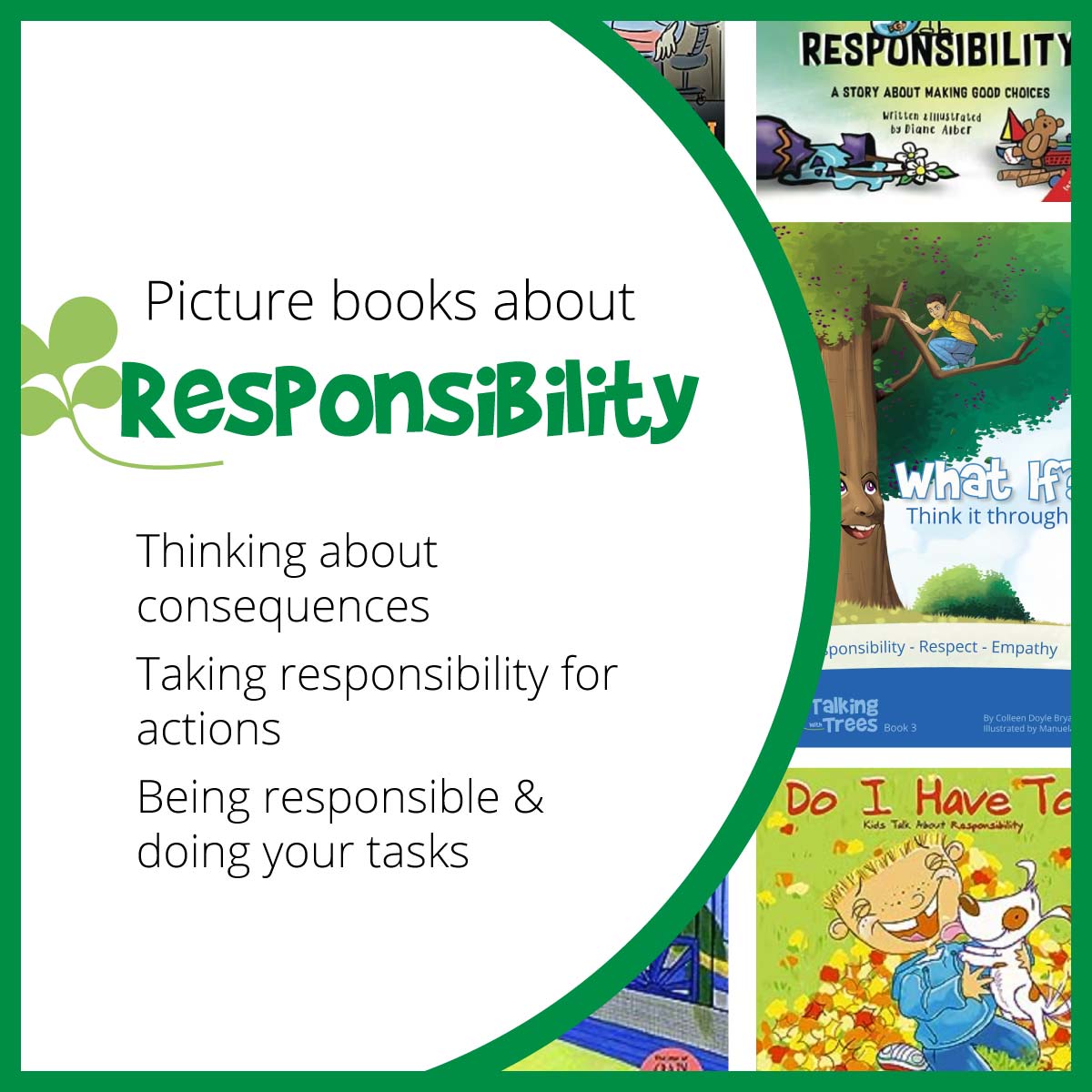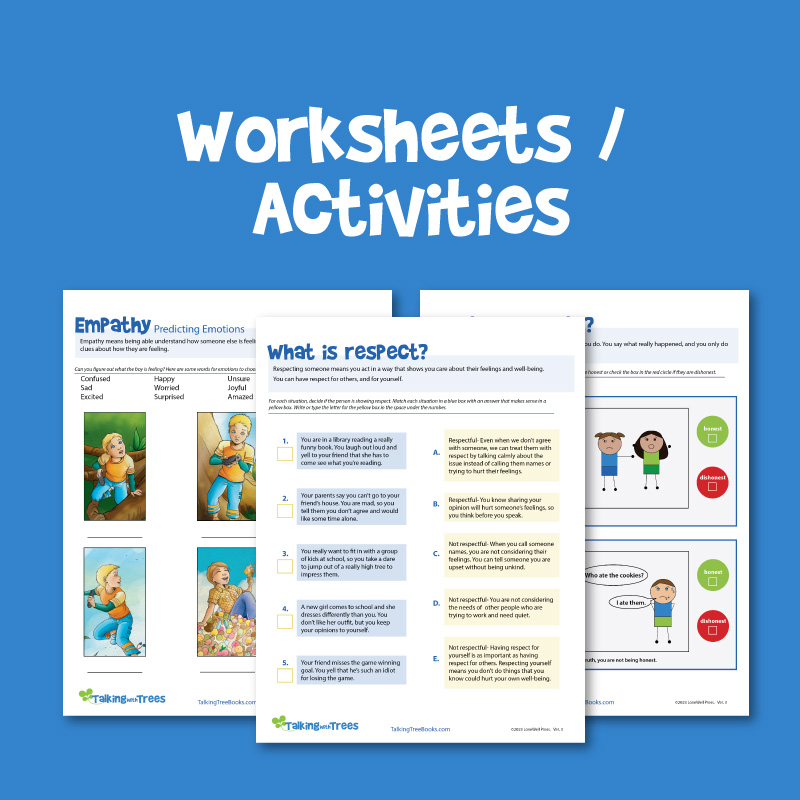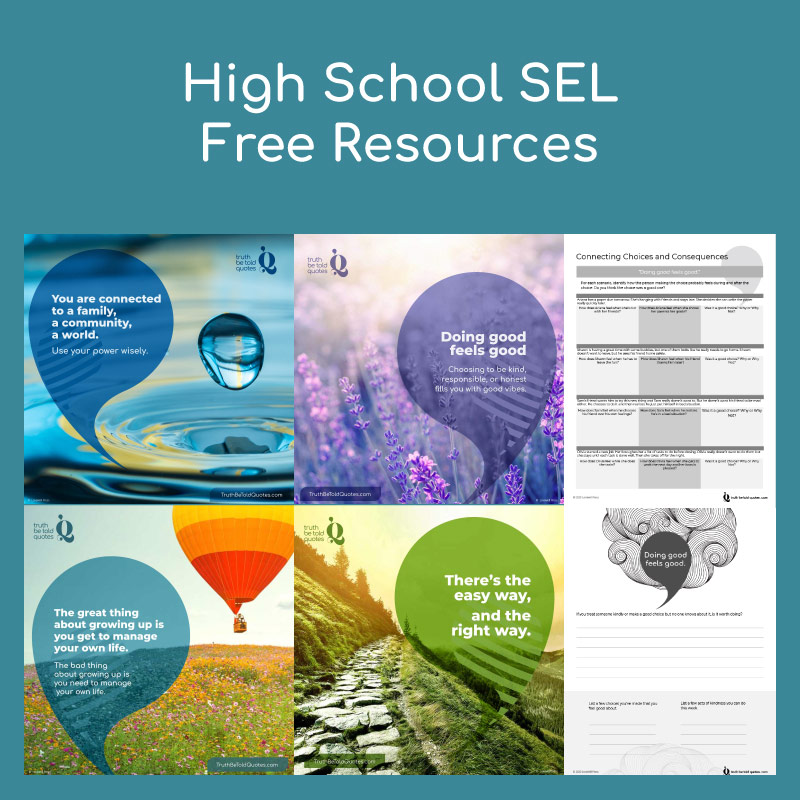What is Responsibility?
A definition of responsibility in simple words for children
Responsibility means you do the things you are supposed to do.
What is responsibility? We have a few different ways that we talk about responsibility. There’s being responsible, taking responsibility, acting responsibly, and having responsibilities. In simple words, responsibility is about doing the things we are supposed to do, and accepting the positive or negative outcomes of our actions.
Responsibility means you do the things you are supposed to do and accept the results of your actions.
- A responsibility: something you are expected to do
- Being responsible: doing the things you are supposed to do
- Accepting responsibility: taking the praise or the blame for something you have done
For more about responsibility, scroll down:
- What is a responsibility?
- What is a consequence?
- Why is being responsible important?
- Examples of responsibilities and consequences
What is a responsibility?
A responsibility is something you are expected to do.
A responsibility might be a task you are expected to do. For example, your parents expect you to brush your teeth. Brushing your teeth is “a responsibility” and it is your responsibility to brush your teeth every day. Another example is that your teacher expects you to finish your homework on time and to do your best job. So it’s your responsibility to do your homework and to do it to the best of your abilities.
A responsibility might be a way you are expected to act. For example, your parents expect that if you go to play at the park, you will play in a way that won’t seriously hurt yourself or someone else. It’s your responsibility to have fun in a safe and courteous way.
What is a consequence?
A consequence is the result or outcome of our actions. Consequences can be positive (good) or negative (not good). For example, if you are supposed to do your chores by Sunday at 5:00 and you get them done, the consequence of your actions is that you get paid and your parents are happy with you. In another example, if you leave your bike behind your dad’s car and he doesn’t see it and runs over it, the consequence of your action is that your bike is ruined.
Examples of responsibility and consequences
Responsibility Example 1: Feeding the Dog
Responsibility: Each morning you are expected to feed the dog.
Consequence if you are responsible: First, the dog has a full belly and is healthy. Second, your parents know they can trust you to do what you say you will do and will be more likely to give you space and freedom to manage your own time.
Consequence if you are irresponsible (not responsible): First, the dog is hungry and long-term you could harm the dog’s health. Second, your parents are disappointed and feel they have to check up on you and control your behavior more.
Responsibility Example 2: Being Home On Time
Responsibility: You meet your friends at the park to play and are expected to be home by 5:30.
Consequence if you are responsible: You set an alarm on your watch and make sure you leave the park with enough time to get home by 5:30. Your mom is confident you are safe and well and she trusts you to go to the park and hang with your friends next time.
Consequence if you are irresponsible: You lose track of time and don’t get home until 6:00. Your mom has had 30 minutes to worry about where you are and now she’s upset. She says next time you can only go to the park if your big brother can go with you and supervise. You lost freedom and independence.
Example 3: Using the Internet safely
Responsibility: Taking care of your personal safety. Each of us is responsible for our own personal safety, which means we are expected not to do things that put ourselves in danger. Because of this, teachers and parents expect kids to use the Internet responsibly. They teach kids how to only view sites that are safe and they expect kids to avoid sites where they might find content that isn’t appropriate or healthy for young people. Being responsible in how we use the Internet, means we do as teachers and parents instruct and only go to the siteas we know are safe.
Consequence if you are responsible: You see content that is safe and don’t interact with people who might want to do you harm. Your parents and teachers can trust you to use the computer by yourself.
Consequence if you are irresponsible: You may see things that aren’t healthy for a young person to see, or you might interact with people who want to hurt you. Your parents and teachers take away your freedom on the Internet and you must ask for permission and only use the computer when you have an adult watching you.
Why responsibilty is important
To understand why responsibility is important, think about what life would be like if people don't act responsibly. If no one does what they say they will do, how can anyone trust each other? If no one is responsible about cleaning up after themselves how could we live in a healthy environment? If parents aren't responsible for their kids, and kids aren't responible with their chores or homework... what would happen? What if other kids at the park weren't responsible and played in a dangerous way?
All of us in society need to act with responsibilty if we want to live safely together.
Colleen Doyle Bryant
Colleen Doyle Bryant is the author of five books and more than 50 learning resources about making good choices for the right reasons. Her Talking with Trees series for elementary students and Truth Be Told Quotes series for teens are used in curricula around the world. Rooted in Decency, Colleen’s most recent release, written for an adult audience, explores how the decline in common decency is affecting wellbeing, and how we can build more trust and cooperation. Learn more at ColleenDoyleBryant.com

